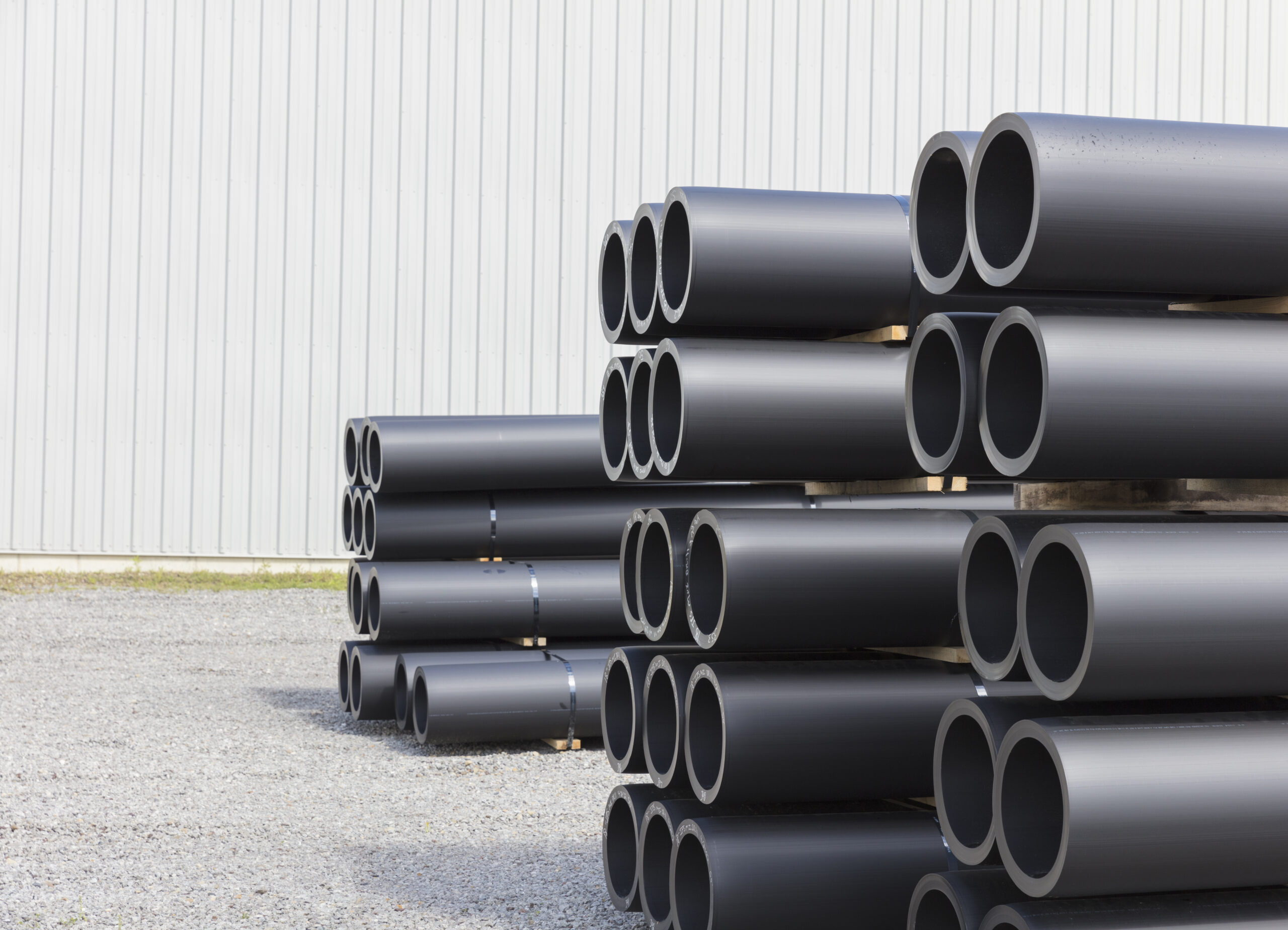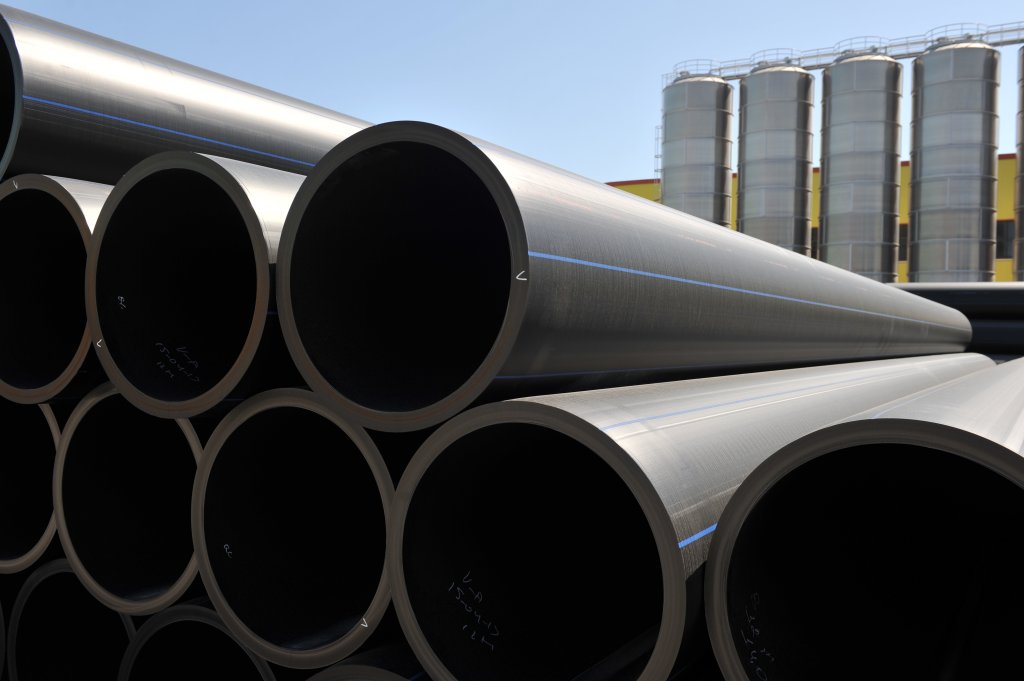Why Partnering with Pipe Supplier American Plastics Midland Ensures Timely Supply
Recognizing the Trick Conveniences of HDPE Pipeline for Water and Wastewater Administration
The use of HDPE pipe in water and wastewater monitoring presents countless advantages that merit consideration. Its phenomenal longevity and lengthy life-span make it a favored choice for many tasks. Furthermore, the material's resistance to corrosion and chemical damages improves its integrity in different atmospheres. However, the benefits expand beyond simply durability and resistance. Discovering its cost-effectiveness and environmental effect discloses also much more engaging reasons for its extensive fostering in modern-day framework
Extraordinary Toughness and Durability

HDPE pipeline stands out for its phenomenal sturdiness and durability, making it a recommended selection in water management systems. Constructed from high-density polyethylene, these pipelines can endure significant pressure and tension, ensuring reputable efficiency with time. Their durable nature permits them to endure extreme ecological problems, consisting of temperature level variations and dirt movements, which can cause other materials to stop working.
The life expectancy of HDPE pipelines commonly goes beyond half a century, providing a cost-effective option for districts and sectors alike. In addition, the product's lightweight homes simplify setup, decreasing labor expenses and timeframes. This resilience minimizes the need for constant fixings or substitutes, additionally improving its economic allure.
In water monitoring applications, the dependability of HDPE pipes means less disturbances and boosted solution continuity, making them integral to lasting framework growth. The mix of longevity and durability solidifies HDPE's duty as a foundation in effective water monitoring options.

Resistance to Corrosion and Chemical Damage
While numerous products catch deterioration and chemical damage with time, HDPE pipes show amazing resistance, making them ideal for different water monitoring applications. This durability comes from the molecular structure of high-density polyethylene, which is inherently non-reactive and does not rust like metals or weaken from exposure to extreme chemicals. Because of this, HDPE is highly efficient in environments with aggressive compounds, such as wastewater systems that might contain acids, bases, and organic solvents.
Additionally, HDPE pipes can withstand ecological factors such as dirt acidity and saline problems, better enhancing their suitability for varied applications (American Plastics HDPE Pipe for Oilfield). Their ability to preserve structural integrity over time lowers the danger of leakages and failings, which is vital in ensuring the safety and integrity of water distribution and wastewater management systems. The resistance to corrosion and chemical damage considerably adds to the overall effectiveness and durability of HDPE piping solutions.
Cost-Effectiveness and Economic Benefits
When thinking about the financial effects of water administration systems, the cost-effectiveness of HDPE pipes becomes noticeable. These pipelines use lower installment and upkeep costs contrasted to typical materials like metal or concrete. Their lightweight nature simplifies transport and installment, leading to reduced labor costs. In addition, HDPE pipelines display a lengthy life expectancy, frequently surpassing 50 years, which translates to less substitutes and lasting cost savings.
In addition, the resistance of HDPE to corrosion and chemical damage lessens the requirement for pricey fixings and replacements. The pipes likewise support reliable water circulation, decreasing power expenses related to pumping systems. By mitigating leakages and water loss, HDPE pipelines contribute to substantial financial advantages for districts and visit their website industries alike. In general, the first financial investment in HDPE piping can yield substantial financial returns over the lifespan of the water monitoring system, making it a prudent selection for sustainable framework advancement.
Ecological Sustainability and Reduced Effect

Convenience and Flexibility in Installment
As a result of their special residential properties, HDPE pipes offer exceptional flexibility and adaptability in setup, making them appropriate for a large array of applications. Their light-weight nature enables for simpler handling and transport, lowering labor expenses and installment time. HDPE pipelines can be bent and formed to fit numerous terrains and project needs, which is particularly advantageous in challenging environments.
Additionally, their resistance to deterioration and chemical damages enables setup in varied settings without the demand for specialized safety finishings. The ability to fuse joints develops a continuous, leak-free system, boosting the general stability and integrity of the installation. HDPE's adaptability likewise fits ground activity, plumbing pipe repair reducing the danger of damage in areas susceptible to changing dirt. Overall, these characteristics make HDPE pipelines not only flexible but also a recommended choice for water and wastewater management systems.
Regularly Asked Questions
Exactly How Does HDPE Pipe Compare to PVC in Water Administration Applications?
HDPE pipe offers premium adaptability, resistance to deterioration, and resilience contrasted to PVC. Its lighter weight helps with simpler setup, while its long lifespan decreases substitute costs, making HDPE a preferred choice in water monitoring applications.
What Is the Life-span of HDPE Pipes Under Regular Conditions?
Under normal problems, HDPE pipes can have a life expectancy ranging from 50 to 100 years. Their sturdiness and resistance to corrosion add to their lasting performance in different applications, making them a reliable choice for facilities.
Are HDPE Pipeline Recyclable After Their Solution Life?
Yes, HDPE pipes are recyclable after their service life. Texas hdpe pipe manufacturer. They can be processed and repurposed right into brand-new items, significantly minimizing ecological effect and promoting sustainability within the industry, making them an environmentally friendly option for piping options
What Is the Setup Refine for HDPE Pipeline?
The setup process for HDPE pipes includes site preparation, trenching, pipe fusion or mechanical signing up with, backfilling, and pressure testing. Correct strategies ensure a durable and reliable system for delivering water and wastewater successfully.
Can HDPE Piping Be Made Use Of for Both Drinkable and Non-Potable Water Systems?
Yes, HDPE pipes can be utilized for both safe and clean and non-potable water supply. Their convenience, sturdiness, and resistance to corrosion make them ideal for various applications, guaranteeing safe and effective transportation of water in various contexts.